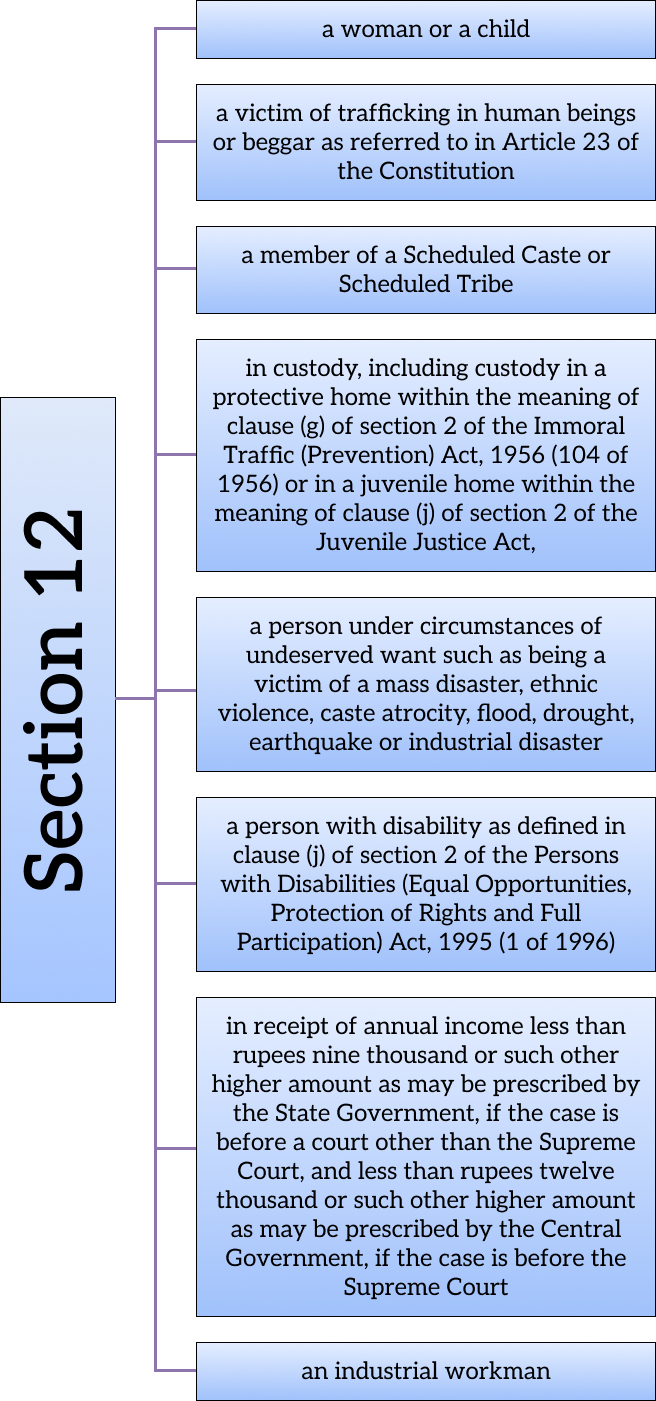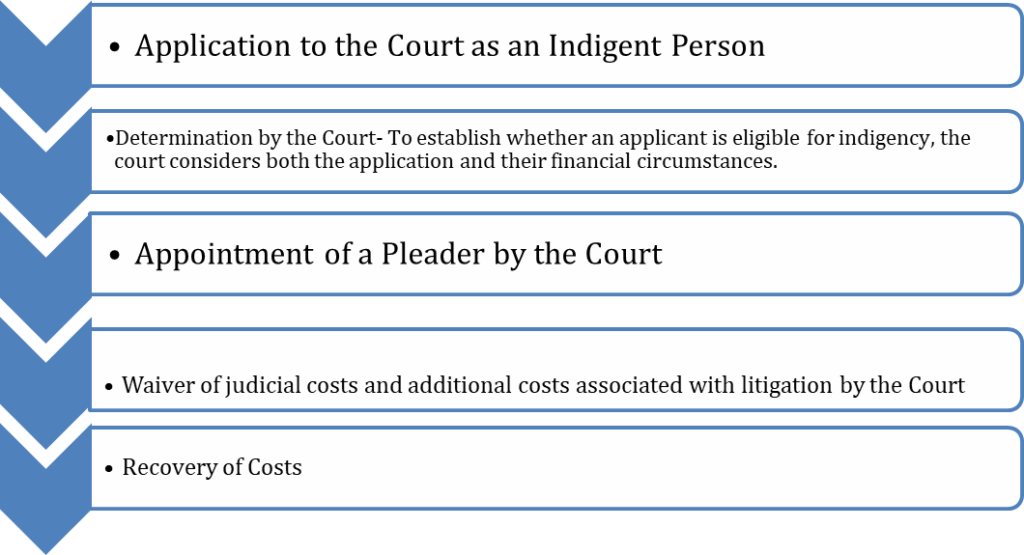Access Defence
- Niyam India Foundation
- Access Defence
Patricia E. Wall
Co-Founder & CEO
Thomas C. Bale
Goldcliff Circle
Elyse A. Phillips
Walkers Ridge
Ethel K. Daley
Trouser Leg
Alyssa P. Scribner
Hinkle Deegan
Velma P. Hawkins
Blue Spruce
Considering the high percentage of poverty in India, it is extremely difficult for the underprivileged to file a lawsuit and cover all associated costs. According to the dictionary definition, an “indigent person” is someone who is extremely poor, impoverished, or who does not have access to the necessities of daily living. According to legal terminology, an indigent person is an impoverished individual who lacks the financial means to cover the court costs.
As per the FAQ in the LokSabha discussions, the statistics in India for people who have received free legal aid in India are given year wise as below-
| Sr. No. | Year | No. of people in India |
| 1. | 2019-2020 | 12,12,137 |
| 2. | 2020-2021 | 6,31,758 |
| 3. | 2021-2022 | 63,69,643 |
Legal Framework
Anyone wishing to represent themselves as an indigent person must submit an application to the appropriate court stating that they are an indigent person. The person shall be deemed destitute by the court if it finds the application satisfactory and acknowledges that the applicant lacks the financial means to pay the court fee.
Helping the less fortunate members of society who are underprivileged and unable to afford solicitors is the primary goal of Order XXXIII of the Civil Procedure Code, 1908. In accordance with Article 14, it is also necessary to treat every member of society equally, and Articles 21 and 22 state that everyone has the fundamental right to a fair trial in whatever instance.
As part of legal services, Section 12 of the Legal Services Authority Act, 1987 covers the provision of free legal aid to the less fortunate members of society. It also involves promoting legal literacy through legal literacy camps, print and digital media, and the holding of LokAdalats, which are forums for the peaceful resolution of unresolved or pending problems by compromise.
Section 12 defines the following person to be eligible for free legal services to the following person-
The income threshold for the for the indigent persons is given under the Section 12 (h) Legal Services Authority Act,1987, and is given statewise for every state.


Judicial Activism
In the case of Union Bank of India v. Khader International Construction( 2001 (5) SCC 22), the Honourable Supreme Court deliberated on the meaning of an Indigent Person. The court noted that an indigent person is one who does not have enough money (apart from property that is immune from attachment in the execution of a decree and the suit’s subject matter) to cover the legal fee that the plaintiff in such a suit must pay. If no such charge is specified and the individual in question is not entitled to any property worth a thousand rupees aside from that which is immune from attachment during the execution of a decree and the suit’s subject matter, then they would be considered impoverished.
Key Elements in an Indigent person Suit
A number of essential components of Order 33 are essential in enabling the legal representation and involvement of impoverished individuals in civil action.


Order 33’s fundamental goal is to fulfill three purposes, which include
- Protecting the rightful claims and rights of the Indigent Persons
- Giving the Indigent person fair right of representation
- Protecting the Rights of the Rights
HOW DO WE ASSIST








